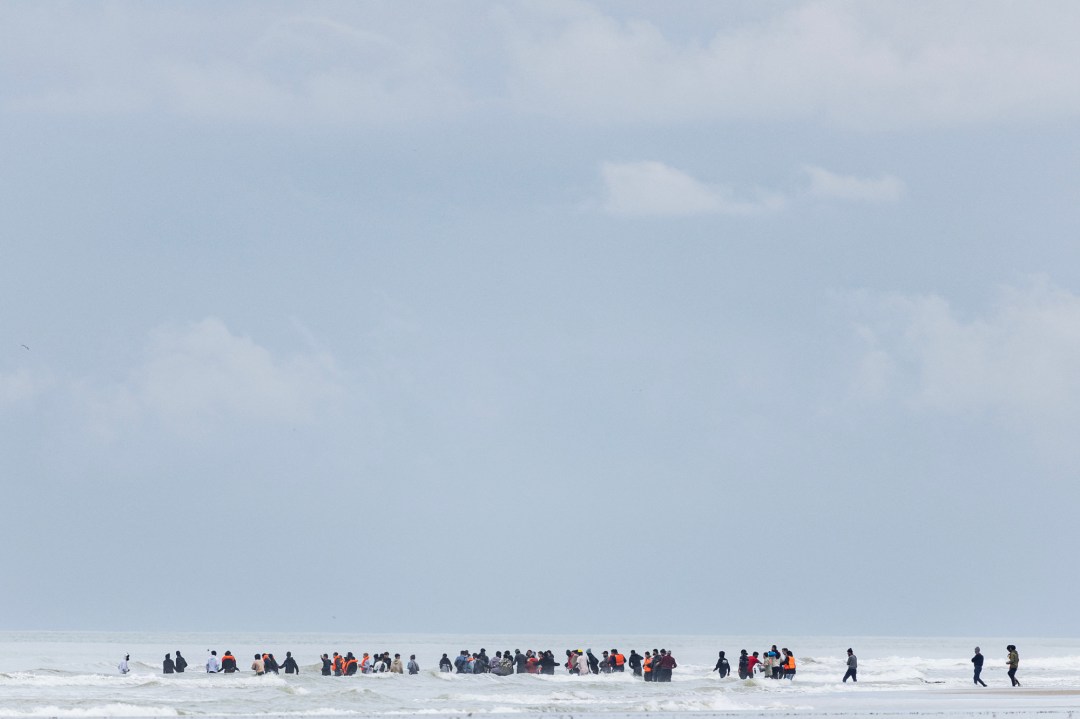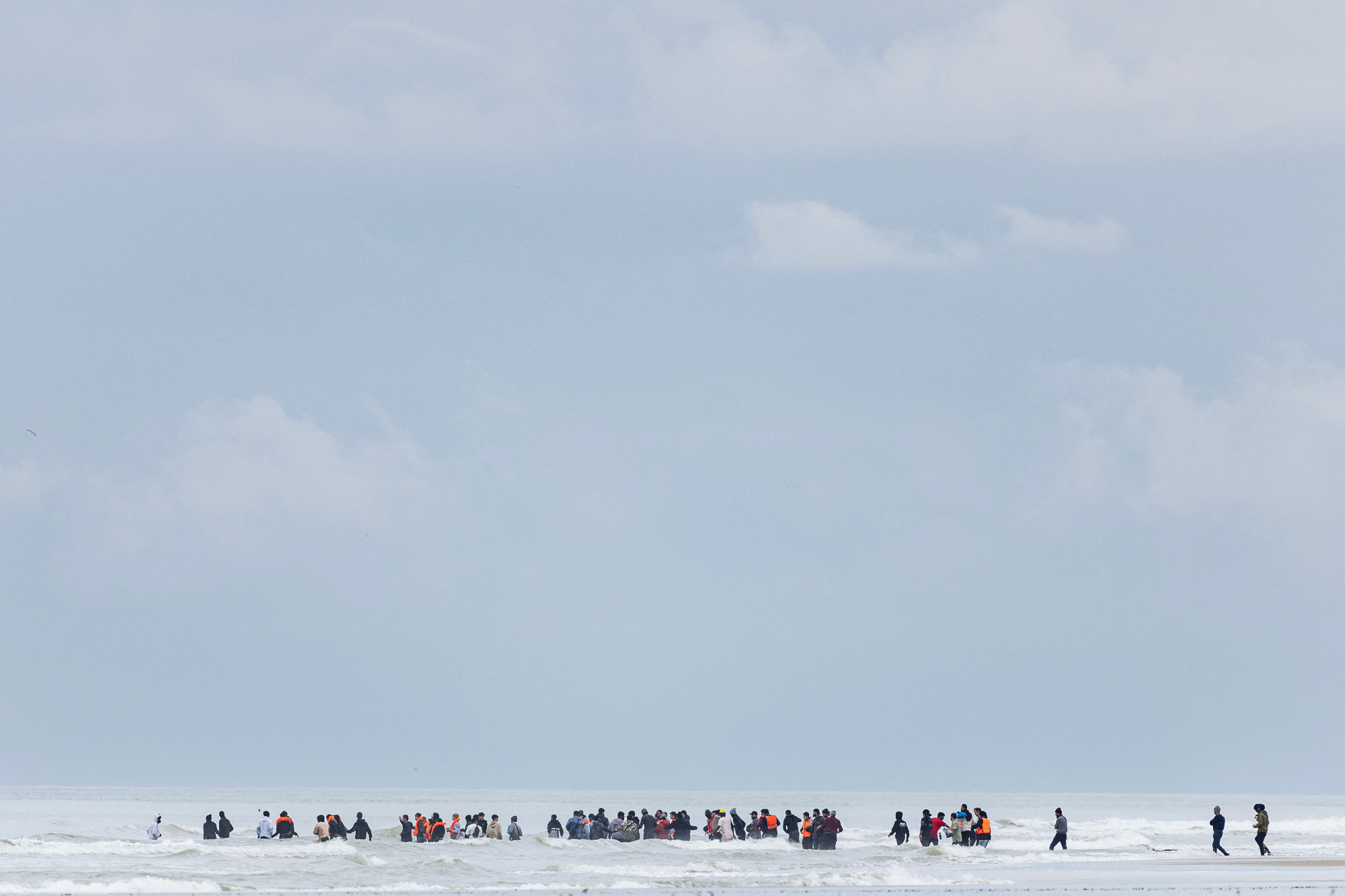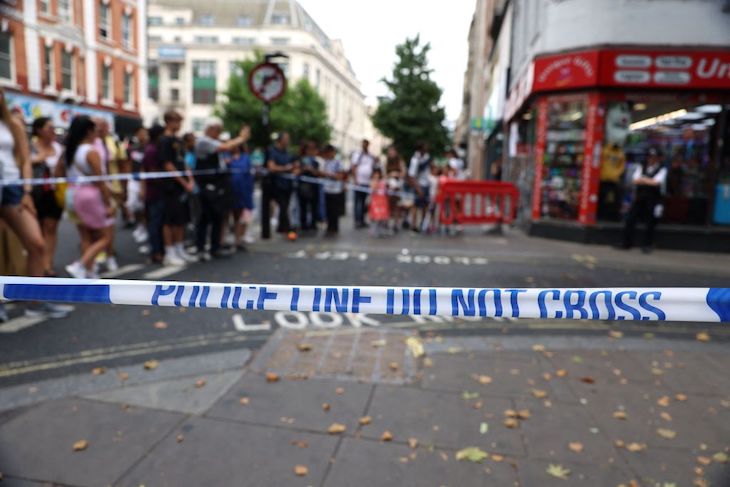New immigration data published today has only reinforced what many have known for some time – the current government strategy of ‘smashing the gangs’ to resolve the UK’s small-boats emergency is failing miserably.
There are growing signs that the impact of the Yemeni civil war and the Israel-Palestine conflict is spilling over into the UK’s small-boats emergency
Following the recent development that 50,000 small-boat migrants had arrived in the UK under the prime ministership of Sir Keir Starmer, the fresh immigration statistics reveal that in the year ending June 2025, there were 49,341 detected so-called ‘irregular arrivals’ – 27 per cent more than in the previous year. Nearly nine in ten arrived by crossing the English Channel on a small boat.
But what is especially alarming is the demographic breakdown of recent small-boat migrants who have arrived on Britain’s shores. It is safe to say that that we are not referring to migratory trends dominated by women and girls who are at serious threat of sex-based violence in warzones where rape is used as a weapon of war. From January to June 2025, 70 per cent of the 19,982 small-boat migrants who were recorded as arriving in the UK were males who were 18 to 39 years of age. During this time, the top five nationalities among small-boat migrants are the following: Eritrean, Afghan, Sudanese, Somali, and Iranian. They originate from parts of the world where women’s rights are not in especially high supply.
On top of that, there are emerging trends which underscore the reality of the small-boats crisis being a national-security emergency. In the first half of this year, 977 Yemeni nationals arrived in the UK through small-boat Channel crossings – adding to the 1,300 last year. From January to June this year, 266 small-boat migrants who reached the UK’s shores were recorded as originating from the ‘Occupied Palestinian Territories’ – a marked increase from last year’s total figure of 72. There are growing signs that the impact of the Yemeni civil war and the Israel-Palestine conflict is spilling over into the UK’s small-boats emergency. Irrespective of one’s views on UK Middle Eastern policy, the possibility of the UK importing Yemenis sympathetic to the Houthis and Palestinians supportive of Hamas – two Islamist political-military organisations backed by the Islamic Republic of Iran – carries significant public-safety risks, especially to Britain’s Jewish communities.
From both a fairness and security perspective, the current situation is not remotely sustainable. The UK’s dysfunctional and overburdened asylum system has been exploited by economic migrants – often single unattached males – who have jumped the queue and undercut women and girls at major risk of sexual violence in conflict-affected territories. So-called ‘feminists’ have not only been silent over this, but also how the unregulated importation of single male migrants from comparatively misogynistic societies has undermined the safety of British women and girls. And then there is the largely overlooked risk of the UK’s small-boats crisis potentially fanning the flames of Islamist anti-Semitism on these islands.
But the injustice does not end there, with newcomers being disproportionately rehomed in all-inclusive accommodation based in economically challenged parts of the UK where the competition for public resources is more intense. As highlighted by a Policy Exchange report published back in the summer of 2023, many of Britain’s deprived inner-city areas and working-class towns have been treated by Whitehall as dumping grounds for the UK’s small-boats emergency – with little regard for the intolerable strain placed on community relations. The violent disorder outside the four-star Suites Hotel in Knowsley, back in February 2023, should have been a major wake-up call for the relevant public authorities. But such is the current scale of the problem, the reverberations of the small-boats emergency are now being felt in English market towns such as Epping in Essex, Diss in South Norfolk, and Nuneaton in Warwickshire.
With Epping Forest District Council being granted a temporary High Court injunction which essentially blocks asylum seekers from being housed at The Bell Hotel, it is likely that other local authorities concerned over matters of public order will seek similar rulings for hotels in their own areas. If these hotels are off-limits, the UK government may look to shift more small-boat migrants into the private housing sector – houses in multiple occupation (HMOs).
Of course, shifting small-boat migrants from one community setting to the next is about as helpful as rearranging the deckchairs on the Titanic. Anyone who is serious about social cohesion and public safety in modern Britain must embrace the idea of a rigorously selective asylum system and effective deportations regime for failed applicants – a hard-headed arrangement which ultimately prioritises the collective security of British citizens. If this requires the UK reforming its own human-rights architecture and reconsidering its association with international treaties such as the 1951 Refugee Convention, then that is a step we must take.








Comments